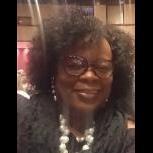-
Posts
3,651 -
Joined
-
Last visited
-
Days Won
118
richardmurray's Achievements
Single Status Update
See all updates by richardmurray
-
The following is my neutral reply to a reply to my words appended after.
science just means knowledge.
Using my own linguistic style, I will say, Researchers , who are able to be concurred to or refuted by others, suggest based on their studies that bias, communal positions based on interpreting race, has no genetic source.
I concur that biases , like linking intelligence or emotional quality to a racial factor like phenotype or gender, are not genetically based most of the time.
Yes, one can argue that downs syndrome, which is a known, publicly known, genetically derived condition with symptoms of mental inaptitude or uncommon difficulty does at the least prove genetics has instances where it influences intelligence, but the genomes which tend to be variant in those with downs syndrome do not occur bounded to the presence of other genetic markers for gender or phenotype or other, at least to my knowledge.
Yes, one can argue that women during pregnancy, which is a genetically based condition < men if healthy can not get pregnant whereas a woman who is healthy can> , have a long history of recorded emotional swings but like downs syndrome, it isn't bounded to the presence of other genomes.
I will speak for myself.
I am not being dishonest, I have said no lie, or betrayed my thinking. Nor have I spoken illogically, absent a structured reason, or ignorantly, meaning absent knowledge.
And as this is the African American Literature Book Club, I think a greater point is being missed. The most important point of the trilog and that is use of words, especially in the black community of the usa.
In literature, the use of words is logically the most important aspect of literature, not culturally or heritagewise but logically. That is why the word gay doesn't mean happy anymore for most people in the anglophone.
To me, as I said before, I didn't explain myself to get anyone else to change. I explained myself cause I felt it was warranted as functional reasoning that needs to be emitted, and not silent. I don't think any conflict exist between the three in the trilog. All explained themselves, and I said what Troy said makes sense, is logical, based on the elemental parts. But my elemental parts are other. It doesn't make me right or the other two wrong., or them right and me wrong. We have two different definitions of race that have no middle point and in my eyes, none of us have a reason to utilize the other, unless we as individuals want to.
But, Troy, a member of this group, asserted at the end, that I , or anyone else, shouldn't have a different use of words than websters or majority users. And I oppose that 100%. Just because websters has decided on a definition doesn't make it irrefutable , regardless of how many people are taught it or are indoctrinated to it.
And this goes into the black community. If one hundred black people live in a room and 99 say things one way and have a different mind to the room, why should the one be uncomfortable because they are alone. Some speak of individualism quite often in the black community in the usa, yet they often suggest in parallel that individualism should give into communalism when one is not comfortable, defined as opposed to a majority.
And yes, I reject more than one word in websters. As a poet I study words and I have found heavy levels of misuse in words. So much so I do it often myself, cause the USA environment has made common a lot of incorrect word usages. I will love to have a chance to work on a dictionary for a less known or used language. I wish Black people in the USA had not thrown away our many dialects for .... websters.
I nearly hate the blanc french but I have always been a fan of the following.
https://en.wikipedia.org/wiki/Académie_Française
Why? I think the french are correct in the maintenance of language. In the same way the architects of timbuktu are correct in making buildings where aspects to their maintenance or repair is part of their final structure. Every language should have some organization to manage it to be within itself. American English is a terrible language in that way. It is unorganized, muddled, and ugly in the allowance of atemporal disjunction.
The USA thought about it
http://www.languagepolicy.net/archives/Adams.htm
The continental congress logic wasn't flawed. From the beginning they realized, that having language be fluid opened up allowances in expression, which allows for the composite nation speech point.
Composite nation from frederick douglass
But Adams was correct. Language dictates the populace. When you look at the usa today and the individual liberty of it, it can be argued that the freedom of language plus the lack of management of language is a key to its populace's makeup. American English is looking to be mixed , so to speak.
But it is interesting that so many Black people in my creative circle, writers especially, are willing to suggest my use of words is false based not on anything official, but merely majority use, absent any management. I suggest a managed and researched language is best in any community, or you end up talking muddle.
John Adams penned this proposal while on a diplomatic mission to Europe during the Revolutionary War. Formally entitled "A Letter to the President of Congress," it was dispatched from Amsterdam on September 5, 1780.
As eloquence is cultivated with more care in free republics than in other governments, it has been found by constant experience that such republics have produced the greatest purity, copiousness, and perfection of language. It is not to be disputed that the form of government has an influence upon language, and language in its turn influences not only the form of government, but the temper, the sentiments, and manners of the people. The admirable models which have been transmitted through the world, and continued down to these days, so as to form an essential part of the education of mankind from generation to generation, by those two ancient towns, Athens and Rome, would be sufficient, without any other argument, to show the United States the importance to their liberty, prosperity, and glory, of an early attention to the subject of eloquence and language.
Most of the nations of Europe have thought it necessary to establish by public authority institutions for fixing and improving their proper languages. I need not mention the academies in France, Spain, and Italy, their learned labors, nor their great success. But it is very remarkable, that although many learned and ingenious men in England have from age to age projected similar institutions for correcting and improving the English tongue, yet the government have never found time to interpose in any manner; so that to this day there is no grammar nor dictionary extant of the English language which has the least public authority; and it is only very lately, that a tolerable dictionary has been published, even by a private person, and there is not yet a passable grammar enterprised by any individual.
The honor of forming the first public institution for refining, correcting, improving, and ascertaining the English language, I hope is reserved for congress; they have every motive than can possibly influence a public assembly to undertake it. It will have a happy effect upon the union of the States to have a public standard for all persons in every part of the continent to appeal to, both for the signification and pronunciation of the language. The constitutions of all the States in the Union are so democratical that eloquence will become the instrument for recommending men to their fellow-citizens, and the principal means of advancement through the various ranks and offices of society.
In the last century, Latin was the universal language of Europe. Correspondence among the learned, and indeed among merchants and men of business, and the conversation of strangers and travellers, was generally carried on in that dead language. In the present century, Latin has been generally laid aside, and French has been substituted in its place, but has not yet become universally established, and, according to present appearances, it is not probable that it will. English is destined to be the next and succeeding centuries more generally the language of the world than Latin was in the last or French is in the present age. The reason of this is obvious, because the increasing population in America, and their universal connection and correspondence with all nations will, aided by the influence of England in the world, whether great or small, force their language into general use, in spite of all the obstacles that may be thrown in their way, if any such there should be.
It is not necessary to enlarge further, to show the motives which the people of America have to turn their thoughts early to this subject; they will naturally occur to congress in a much greater detail than I have time to hint at. I would therefore submit to the consideration of congress the expediency and policy of erecting by their authority a society under the name of "the American Academy for refining, improving, and ascertaining the English Language." The authority of congress is necessary to give such a society reputation, influence, and authority through all the States and with other nations. The number of members of which it shall consist, the manner of appointing those members, whether each State shall have a certain number of members and the power of appointing them, or whether congress shall have a certain number of members and the power of appointing them, or whether congress shall appoint them, whether after the first appointment the society itself shall fill up vacancies, these and other questions will easily be determined by congress.
It will be necessary that the society should have a library consisting of a complete collection of all writings concerning languages of every sort, ancient and modern. They must have some officers and some other expenses which will make some small funds indispensably necessary. Upon a recommendations from congress, there is no doubt but the legislature of every State in the confederation would readily pass a law making such a society a body politic, enable it to sue and be sued, and to hold an estate, real or personal, of a limited value in that State.
ORIGINAL REPLY








.thumb.jpg.ed52910791d00308abb8c218695bec88.jpg)


